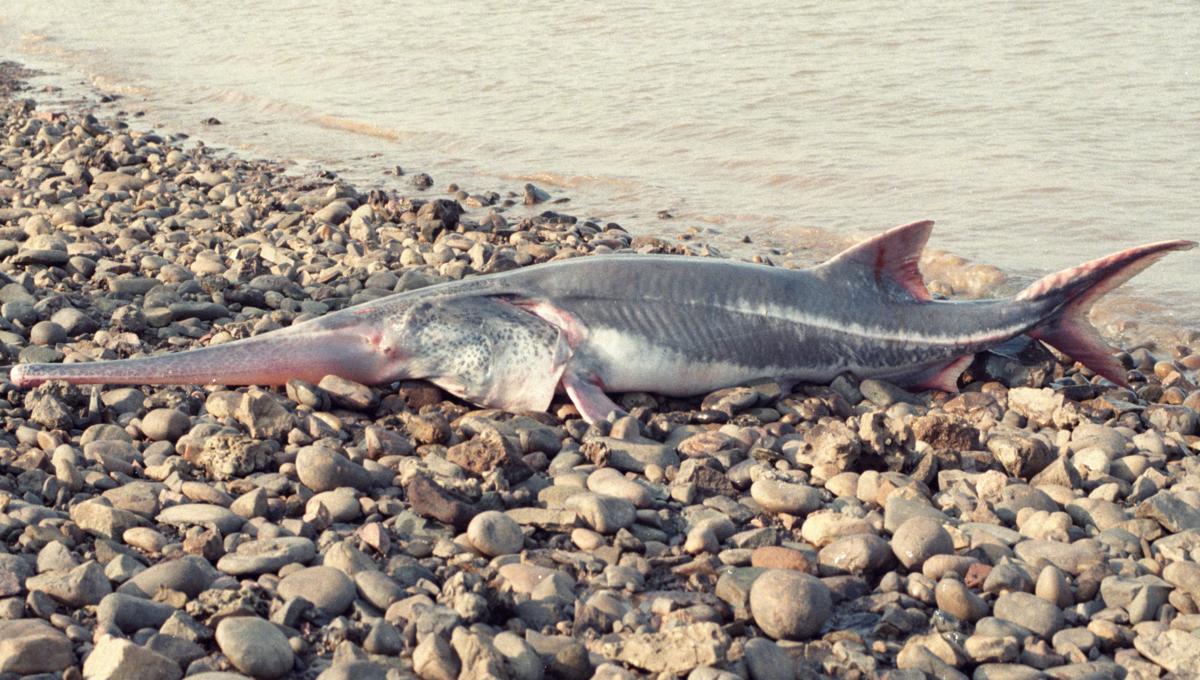An Insatiable Appetite = Extinction
“It is likely that the lack of reproduction was among the major causes of extinction,”
"As no individuals exist in captivity, and no living tissues are conserved for potential resurrection, the fish should be considered extinct."
Research paper, Science of the Total Environment journal
“It’s very sad. It’s a definitive loss of a very unique and extraordinary animal, with no hope of recovery."
"This is the first of these very large freshwater fish to go and many are at risk—the concern is that more will go extinct, but the hope is that we can reverse their decline before it’s too late."
Zeb Hogan, fish biologist, University of Nevada, Reno
"The extinction of the paddlefish is a huge loss and reflects the critical status of the Yangtze River ecosystem."
"The ecology of the Yangtze River is close to collapse due to human activity in past decades [overfishing, pollution and dam construction]."
Pan Wenjing, forest and oceans manager, Greenpeace East Asia
/https://public-media.si-cdn.com/filer/f5/ec/f5ecfbf0-253d-4e6c-894f-67f7afe1752c/ap_20010350989859.gif) |
| A Chinese paddlefish specimen made in 1990 is seen on display at the Museum of Hydrobiological Science of the Chinese Academy of Sciences in Wuhan, China. The Chinese paddlefish's sharp, protruding snout made it one of the largest freshwater species in the world. (Museum of Hydrobiological Science of the Chinese Academy of Sciences via AP) |
"The Chinese paddlefish, Psephurus gladius, was one of only two extant members of a relict lineage that was most diverse and widespread 34–75 million years ago."
Hui Zhang, Chinese Academy of Fishery Sciences, Wuhan, China
"Of the estimated 8 million animal and plant species on Earth, about 1 million are threatened with extinction."
"The problem in China, with its rapidly developing economy and urbanizing population, has been particularly acute. Since 1970, almost half of China’s terrestrial animals have vanished."
"The Yangtze River, a key fishery and former home to the Chinese paddlefish, is so dead that President Xi Jinping has said it has reached a 'no fish' level."
"Meanwhile, consumer demand for wildlife products, like tiger-skin rugs or bear bile for medicinal use, is responsible for a boom in the trafficking of endangered species."
Adam Minter, Bloomberg Opinion
 |
Scientists from the Chinese Academy of Fishery Sciences, the University of Kent in England, and the University of South Bohemia in the Czech Republic collaborated on the research that produced the paper pronouncing the end of the ancient fish. They found the fish's existential collapse matching all the criteria for inclusion on the International Union for Conservation of Nature's Red List (IUCN).
Since the late 1970s, populations of the Chinese paddlefish saw a dramatic decline corresponding with major dam construction on the Yangtze River, to which it was a native fish. The Gezhouba Dam, built on the main stream of the immense river, followed by the opening of the gargantuan Three Gorges Dam project in 2003, represented the very last year that anyone was able to sight a live Chinese paddlefish.
In 2017 and 2018, a survey discovered 332 species of fish in the Yantze, yet a single specimen of Chinese paddlefish eluded the researchers who estimate that the fish became extinct between 2005 and 2010. Overfishing in the most populous country of the world; pollution and dam-building reduced its numbers. Not all that long ago, in the 1970s, fishermen harvested 25 tons of Chinese paddlefish from the Yangtze River. By the 1990s, almost none remained.
A predictable outcome for a species of fish that had been on Earth longer than humanity, but whose unfortunate and tragic end resulted from the presence of humans who sought the delicate flesh of this giant fish predator for their dinner tables. A great predator of the seas, a relative of the sturgeon and American paddlefish, had suffered the fate of being victimized by a predator more populous and more dedicated to its dinner table than its own hunting habit.

Labels: Animal Exploitation, China, Environment, Extinction, Giant Paddlefish, Science

0 Comments:
Post a Comment
<< Home